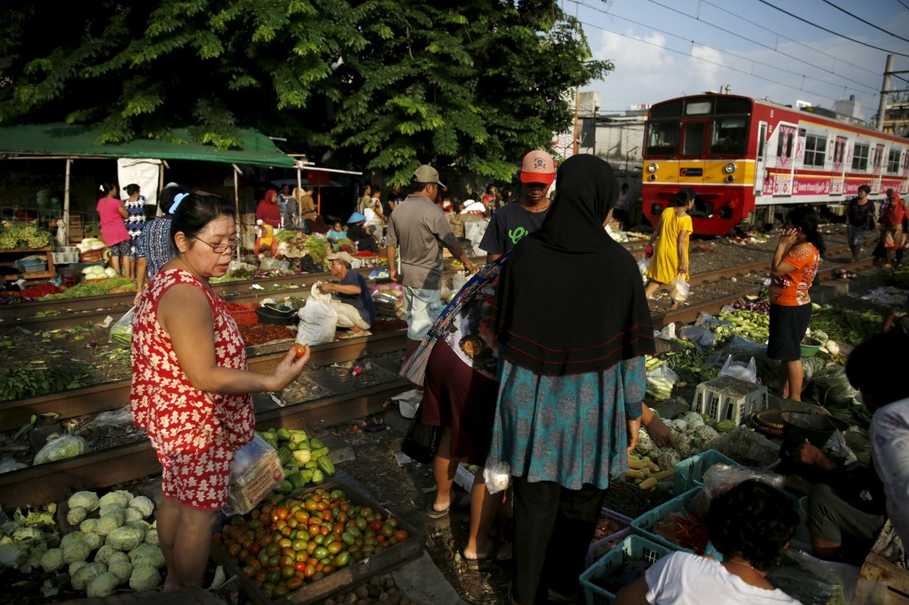

Indonesia’s economy beat forecasts and grew the fastest in 4-1/2 years in April-June, helped by higher consumption during Ramadan, but external headwinds cloud the outlook for lifting growth well above 5 percent.
Southeast Asia’s largest economy grew 5.27 percent from a year earlier in the second quarter, data from the Central Statistics Agency (BPS) showed on Monday (06/08).
This topped the first quarter’s 5.06 percent and a Reuters poll projection of 5.16 percent, while giving Indonesia its best quarter since October-December 2013.
The latest number is the best since Joko “Jokowi” Widodo became president in 2014, and may give him a little boost as he seeks re-election for another five-year term in 2019.
But there are plenty of factors that make it unlikely Indonesia can keep seeing higher growth rates, starting with higher US interest rates — which have battered the rupiah — and possible collateral damage from the US-China trade war, which can hit Jakarta’s commodity exports.
While the April-June number was impressive, “the government will still need to embark on a ‘Mission: Impossible’-like stunt” to reach its target of full-year 5.4 percent growth, said Satria Sambijantoro, economist at Bahana Sekuritas.
Household consumption, which accounts for more than half of Indonesia’s gross domestic product, grew 5.14 in the second quarter from a year earlier. The fasting month of Ramadan and the Idul Fitri celebration, traditionally Indonesia’s peak consumption period, occurred in May-June this year.
Dampening of Demand
However, higher interest rates may dampen demand in the following quarters. Since mid-May, Bank Indonesia raised interest rates by 100 basis points to support the rupiah, and it might not be done hiking.
Meanwhile, the government is reviewing capital goods imports and infrastructure projects to narrow the current account deficit. Investment is Indonesia’s second growth engine.
Investment growth slowed to 5.87 percent in the second quarter after posting over 7 percent growth rate in the previous three quarters
Capital Economics said it doubts Indonesia can maintain the second quarter’s expansion pace.
“On the plus side, rapid wage growth should help support consumption. But this is likely to be overshadowed by headwinds elsewhere. Weaker global demand and lower prices for its main commodity exports [coal and palm oil] mean export revenues are likely to remain low by past standards,” it said.
Also, in its view, infrastructure spending has to slow if the government is to keep the budget deficit within the 3 percent of GDP mandatory limit.